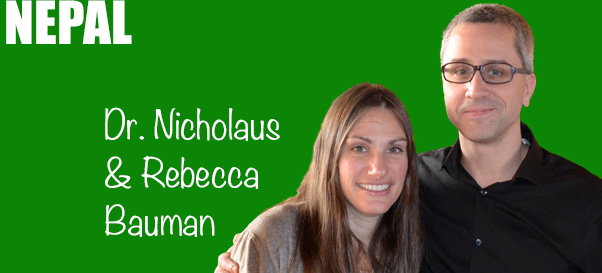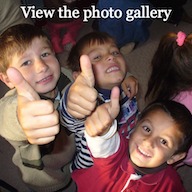 I prepared this little entry months ago, but today I will actually share with you this lovely article from a guest-blogger. That sounds very fancy, doesn’t it? My friend Sarah wrote this article and agreed for me to share it with all of you. She is a speech and language pathologist who is experienced, resourceful, innovative and inspiring. Often she also has to cross over and wear the shoes of an occupational therapist or physiotherapist or respiratory therapist too. She is a great team player and one of those people who sees a need and steps up. Her family has been at this cross-cultural living thing longer than us and so she is also a mentor and great friend. I hope you enjoy the lovely picture she paints here in this article she wrote. One of these babies you will already know as Nick has already shared some of her story with you. Enjoy friends!
I prepared this little entry months ago, but today I will actually share with you this lovely article from a guest-blogger. That sounds very fancy, doesn’t it? My friend Sarah wrote this article and agreed for me to share it with all of you. She is a speech and language pathologist who is experienced, resourceful, innovative and inspiring. Often she also has to cross over and wear the shoes of an occupational therapist or physiotherapist or respiratory therapist too. She is a great team player and one of those people who sees a need and steps up. Her family has been at this cross-cultural living thing longer than us and so she is also a mentor and great friend. I hope you enjoy the lovely picture she paints here in this article she wrote. One of these babies you will already know as Nick has already shared some of her story with you. Enjoy friends!
We have a little sun-filled room in the paediatric ward of the hospital with space for four babies. This is our newborn nursery for infants who need to stay in the hospital longer than the normal 1-3 days after birth. Many of these babies are born premature, or had complications in utero or after birth that make nursing difficult. Often they were born so small, that they need to have supplemental feeding by nasogastric tubes while they are learning the complicated work of sucking, swallowing and breathing.
Today we have four babies and mothers in the room. One baby, born at a tiny 815 grams, has doubled her birthweight and is feeding well. Her feeding tube was removed last week. She was born to a first time mother, and was so small that both parents were too scared to hold her. In the next bed, we have a baby born with bowel obstruction who survived a risky surgery here. She is steadily gaining weight, and is a true testament to the healing power of prayer. She survived when by all accounts she should not have.
Next we have a small son, born to a mother that lost her first child in utero two years ago. This child was delivered by emergency Caesarean section and he needed resuscitation after birth for 10 minutes before he began breathing on his own. He is starting to be more alert now after his first week of life, and his mother is starting to smile and laugh again as her fear for his life subsides.
In the last bed, a son, born 8 weeks premature, with a cleft lip and palate. He is the first child of a young couple, who didn’t know what to expect when their tiny child was born too early and not looking like they had ever imagined. He had to be in an incubator and under lights for jaundice for the first weeks of life. Helping his young mother and father hold him for the first time and explaining about prematurity and clefts was a memorable moment for me. His mother has now mastered how to feed him with a bottle, necessary because of the severity of his cleft palate. Both parents can confidently explain about his future surgeries, and his father lovingly cuddles him and helps with the feedings.
This room isn’t remarkable only because of the individual stories; the patients change weekly, each story is as touching as the last. What is remarkable is the transformations in the parents as they stay in this common room and become a support system for each other. Feeding and caring for premature or neurologically impaired infants often requires different techniques that go against commonly held beliefs. Success would not be guaranteed for these small ones in any culture. As these mothers learn together and feel sense of community, they are able to normalize and prepare for motherhood that looks different than they expected. They do this in a place where their infant is treated and loved and valued. This support is a key to the success of these infants. We have mothers helping each other to do skin-to-skin and to get the babies alert for feeding time. We have the room cheering when another baby gets her nasogastric tube removed, signifying they can meet nutritional needs through breast feeding alone. The first few days in the room, after giving birth and when the unknown is heavy, most mothers are somber, grieving the lack of normal. But as time goes on, as they hear the stories of others, and see the small successes that are celebrated; smiles begin, babies are held more and they are called affectionate names.
The effect of this room and the feeding therapy doesn’t seem to end after discharge either. A mother called last week to rejoice that her baby who left two weeks ago has been gaining weight and is feeding well. She asked about the baby in the next bed, who had the bowel obstruction surgery and sent her greetings to the mother. Another mother stopped me on the street to tell me that her twins who were born two years ago are doing well now, and that she remembered me from her time in the newborn nursery. Often the importance of peer mentoring and counselling is overlooked in busy settings, but in this small room, by facilitating mothers to help other mothers, we see success in the lives of infants and their families. Perhaps they have something to teach us?
Speech Language Pathologist
United Mission Hospital Tansen in Nepal




